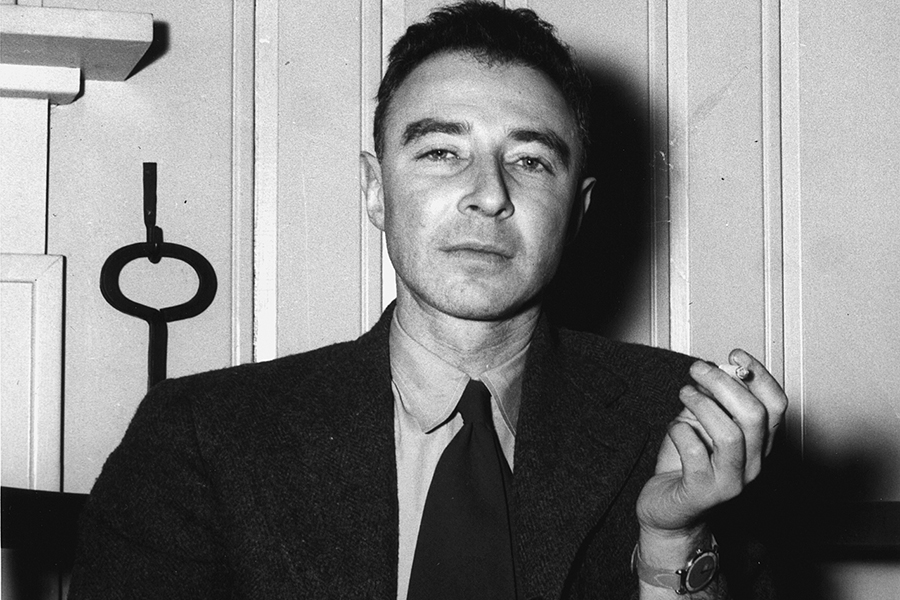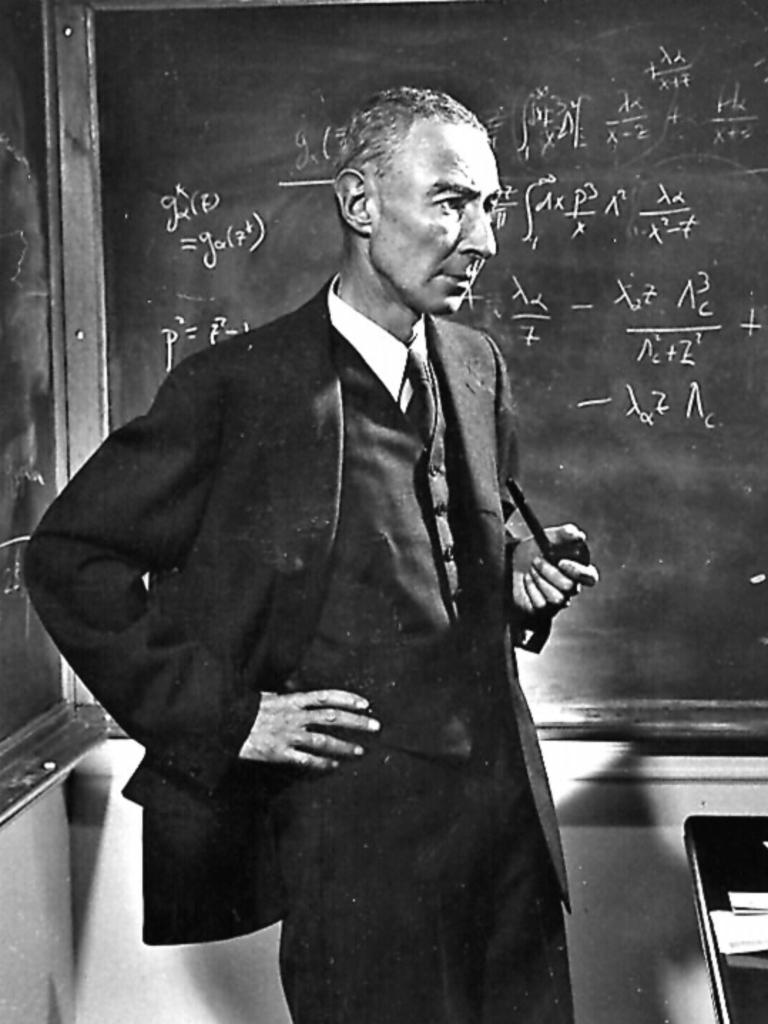J. Robert Oppenheimer: Architect of the Atomic Age
Introduction:
J. Robert Oppenheimer, often referred to as the "father of the atomic bomb," was a complex and enigmatic figure whose contributions to science, technology, and history have left an indelible mark on the 20th century. From his groundbreaking work on nuclear physics to his pivotal role in the Manhattan Project, Oppenheimer's life and legacy continue to fascinate scholars and the public alike. This essay explores the life, achievements, controversies, and enduring influence of J. Robert Oppenheimer, shedding light on the man behind the myth and the complex ethical questions raised by his scientific endeavors.
Early Life and Education:
J. Robert Oppenheimer was born on April 22, 1904, in New York City, into a wealthy Jewish family of German descent. From a young age, he displayed exceptional intellect and curiosity, demonstrating a keen interest in science, literature, and philosophy. After graduating from the Ethical Culture School in New York, Oppenheimer attended Harvard University, where he excelled academically and earned a Bachelor's degree in chemistry in just three years.
Following his undergraduate studies, Oppenheimer traveled to Europe, where he pursued graduate studies in theoretical physics at the University of Cambridge and the University of Göttingen. Under the mentorship of renowned physicists such as Max Born and Wolfgang Pauli, Oppenheimer made significant contributions to quantum mechanics and theoretical physics, laying the groundwork for his future achievements in nuclear science.
Scientific Career and Contributions::max_bytes(150000):strip_icc():focal(975x548:977x550)/j-robert-oppenheimer-1-05a67863f4004a2d84e98c8abe58b3cd.jpg)
Upon returning to the United States in the late 1920s, Oppenheimer embarked on a distinguished academic career, holding positions at renowned institutions such as the California Institute of Technology (Caltech) and the University of California, Berkeley. His research focused on quantum theory, astrophysics, and nuclear physics, earning him widespread recognition as one of the leading theoretical physicists of his time.
Oppenheimer's most significant contribution came in the field of nuclear physics, particularly his pioneering work on neutron stars and black holes. In 1939, he co-authored a landmark paper with his student, George Volkoff, proposing the existence of neutron stars—a prediction that was later confirmed by astronomical observations. His theoretical insights into the behavior of matter under extreme conditions laid the foundation for future research in astrophysics and cosmology.
Manhattan Project and the Atomic Bomb:
In the early 1940s, Oppenheimer's career took a dramatic turn when he was recruited to lead the top-secret Manhattan Project—an ambitious undertaking aimed at developing an atomic bomb before Nazi Germany. As the scientific director of the project, Oppenheimer assembled a team of brilliant scientists and engineers from around the world, overseeing the design, construction, and testing of the world's first atomic weapons.
Under Oppenheimer's leadership, the Manhattan Project achieved its goal with remarkable speed and success, culminating in the successful detonation of the first atomic bomb on July 16, 1945, at the Trinity test site in New Mexico. The subsequent bombings of Hiroshima and Nagasaki in August 1945 brought an abrupt end to World War II but also ushered in a new era of nuclear warfare and geopolitical tensions.
Ethical Dilemmas and Controversies:
Despite his pivotal role in ending the war, Oppenheimer grappled with profound ethical dilemmas and moral ambiguities stemming from his involvement in the development of atomic weapons. In the aftermath of the bombings of Hiroshima and Nagasaki, Oppenheimer expressed deep remorse and ambivalence about the destructive power of nuclear weapons, famously quoting the Bhagavad Gita: "Now I am become Death, the destroyer of worlds."
In the postwar years, Oppenheimer emerged as a vocal advocate for international control of nuclear weapons and arms control agreements to prevent the proliferation of atomic bombs. However, his outspoken views and opposition to the development of the hydrogen bomb—a more powerful and destructive weapon—embroiled him in controversy and political intrigue.
McCarthy Era and Security Clearance Hearing:
During the height of the Cold War and the McCarthy era, Oppenheimer's political leanings and associations came under scrutiny by the federal government, which viewed him with suspicion due to his past ties to leftist organizations and his outspoken views on nuclear disarmament. In 1954, Oppenheimer's security clearance was revoked following a highly publicized hearing before the Atomic Energy Commission (AEC), which accused him of being a security risk and a communist sympathizer.
The security clearance hearing, known as the "Oppenheimer hearing," became a symbol of the government's crackdown on dissent and intellectual freedom during the Red Scare. Despite widespread support from the scientific community and pleas for leniency from his colleagues, Oppenheimer's clearance was ultimately revoked, effectively ending his official involvement in government scientific projects.
Later Years and Legacy:
Following the loss of his security clearance, Oppenheimer's career took a different trajectory, as he returned to academic life and focused on teaching and research at the Institute for Advanced Study in Princeton, New Jersey. Despite the personal and professional setbacks he endured, Oppenheimer continued to make significant contributions to theoretical physics and mentored a new generation of scientists, leaving an enduring legacy in the field of nuclear physics and national security policy.
In 1963, Oppenheimer received the Enrico Fermi Award for his contributions to science and the Manhattan Project, recognizing his role as a "creative leader in the scientific community." Despite the controversies surrounding his life and career, Oppenheimer's name remains synonymous with scientific brilliance, moral introspection, and the complex ethical dilemmas raised by the pursuit of scientific knowledge and technological innovation.
Conclusion:
J. Robert Oppenheimer's life and legacy epitomize the complexities and contradictions of the atomic age—a period of unprecedented scientific progress, moral dilemmas, and geopolitical tensions. As the architect of the atomic bomb, Oppenheimer played a central role in shaping the course of history, ushering in the nuclear era and forever altering the trajectory of human civilization.
Yet, Oppenheimer's legacy extends beyond his scientific achievements, encompassing his moral introspection, his advocacy for nuclear disarmament, and his enduring commitment to the pursuit of knowledge and truth. His life serves as a cautionary tale about the perils of unchecked technological progress and the ethical responsibilities that accompany scientific discovery.
Ultimately, the legacy of J. Robert Oppenheimer reminds us of the profound moral and existential questions raised by the atomic age and the enduring quest for peace, justice, and human dignity in an uncertain world. As we grapple with the challenges of the 21st century—from nuclear proliferation and climate change to social inequality and global conflict—Oppenheimer's life and legacy serve as a poignant reminder of the enduring importance of moral courage, intellectual integrity, and ethical leadership in the face of unprecedented challenges and uncertainties.





































































